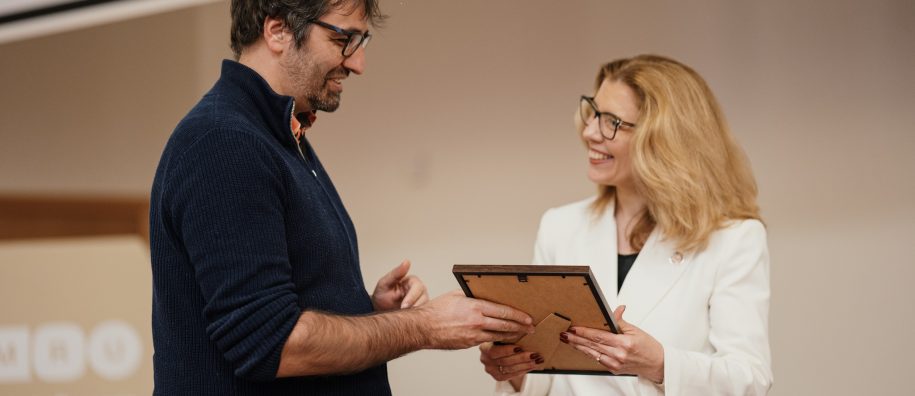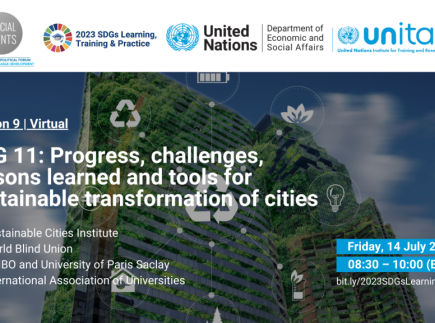
Urbanization is undoubtedly one of the most important global trends of this century. How we govern, plan, and design our cities and urban communities impacts the realization of human rights and how the growing urban inequalities are addressed. Do accessibility, equality, innovative approaches, knowledge and education contribute to sustainable development? These topical issues are being discussed today, 14 July, at a joint session “SDG 11: Progress, challenges, lessons learned and tools for sustainable transformation of cities“. The event is organized by the Sustainable Cities Institute, the World Blind Union, the University of Bologna, the University of Paris Saclay and the International Association of Universities (IAU).
The Rector of Mykolas Romeris University (MRU), Dr. Prof. Inga Žalėnienė, welcomed the participants and partners, stressed the importance of cooperation between all partners in the implementation of SDG 11, which is a part of the 2030 Agenda for Sustainable Development, and contributes to improving the lives of billions of people by transforming the way urban spaces are designed and managed. This commitment is even more important given that by 2050 nearly 70% of the world population will live in cities.
„As we move ahead today, let us remember, that Universities and higher education institutions have a critical role to play in advancing sustainable urbanization. They are repositories of knowledge and innovation, they are developing necessary tools and strategies for achieving SDG 11 and most important – they are growing and fostering global citizens who will drive this change”, said Dr. Prof. I. Žalėnienė, who is also Vice President of the International Association of Universities.
According to the Rector, the International Association of Universities, of which MRU is a member, supports and contributes to the realization of SDG 11 by harnessing the synergies between the various aspects of university life, from teaching and research to governance and community engagement, and by working with partners at the community and city levels.
Prof. Paulo Alexandre da Silva Pereira, Head of the Environmental Management Laboratory at MRU, presented the University's activities in the implementation of SDG 11 and shared examples of good practice. Together with other participants, he discussed the progress, experiences and challenges in achieving SDG 11, and how innovative tools, data and initiatives contribute to the realization of this goal from the perspective of higher education, research, data and accessibility.
Sustainable Development Goal 11, entitled "Sustainable Cities and Communities", is one of the 17 Sustainable Development Goals (SDG) established by the United Nations (UN) General Assembly in 2015 to provide a set of universal goals to address the global immediate challenges. SDG 11 focuses on meeting the challenges of urbanization, promoting more liveable, environmentally friendly and socially inclusive cities.
